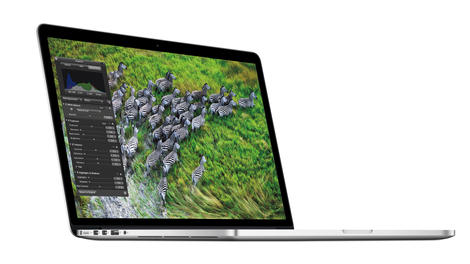Apple : More US agencies are banning Apple purchases due to environmental concerns |
| More US agencies are banning Apple purchases due to environmental concerns Posted:  Apple voluntarily removed a whopping 39 of its devices from the Electronic Product Environment Assessment Tool (EPEAT) registry over the weekend, and US agencies are responding by blocking new purchases of Apple computers, phones and tablets. The EPEAT list is backed by the US government and identifies and rewards companies and products that meet certain environmentally-friendly specifications. One of those specifications is that the devices are easy to take apart for recycling purposes, which Apple's devices increasingly are not. The new Apple MacBook Pro with retina display, for example, uses ample amounts of glue to hold its insides together, making it all the more difficult to disassemble. This reportedly makes the laptop ineligible for EPEAT's registry, a point that became moot when Apple chose to pull its devices from the green list. "They said their design direction was no longer consistent with the EPEAT requirements," EPEAT CEO Robert Frisbee said at the time. An Apple a day keeps the municipality awayBecause of EPEAT's close ties with the US government, more and more US agencies will be forced by their own policies to block purchases of any additional Apple products. San Francisco is apparently leading the charge, with the city's Department of Environment sending letters to all 50 city agencies informing them that city funds can no longer be used to purchase Apple products. Currently, only 500 or 700 (one to two percent) of San Francisco's government computers are Macs. But the ramifications of Apple's decision will resonate much further than the bay area, as an ever-increasing number of environmentally conscious municipalities, schools and corporations have decided to purchase only EPEAT-friendly devices. Even US federal agencies require by policy that EPEAT-listed devices are preferred over those not on EPEAT. TechRadar has reached out to the San Francisco Department of Environment and Department of Technology for comment, but they've yet to respond. Has Apple fallen far from the EPEAT tree?One analyst, speaking to the CIO Journal, said that the small number of agencies that actually require 100 percent EPEAT compliance will make this an insignificant issue for Apple. And Apple, which helped create the EPEAT guidelines in 2006, still offers annual environmental impact reports and in-house recycling programs, so they haven't abandoned green practices altogether. It's more likely that Apple simply wants to handle all repairs and recycling itself while making it difficult for consumers and techies to service their own devices without Apple's help. Presumably the EPEAT-related sales losses will be worth the extra dependence consumers will have on Apple for repairs and service. via ReadWriteWeb, CIO Journal |
| Noise Free suing Apple over noise-canceling patent infringement Posted:  California company Noise Free Wireless leveled a patent infringement suit against Apple, alleging that the tech giant stole their noise-canceling technology. Noise Free also alleges that Apple is in breach of contract and stole trade secrets from the Silicon Valley-based communication technology firm. The suit claims that Noise Free met with Apple in 2007 to discuss using Noise Free digital voice enhancement technology in Apple's iPhone and iPad. Noise Free claims they showed Apple PowerPoint presentations and provided them with circuit boards and a sample phone. Noise Free alleges that Apple then cut off communications with Noise Free briefly in 2009 before filing for their own "use-specific noise suppression for voice quality improvements" patent. In 2010, Apple then cut off business relations with Noise Free and decided to work instead with a competitor, Mountain View, Calif.-based Audience. Noise Free is requesting a permanent injunction against Apple's infringing products, as well as damages and attorney fees. Noise Free, Apple and Audience biting their tonguesNoise Free filed their complaint with the US District Court for the Northern District of California, claiming that Apple violated their noise-canceling technology patent, breached a contract, and stole trade secrets. None of the involved companies seem to want to talk about it, though. Apple has reportedly been unresponsive to queries, though it would be unusual for them if they acted otherwise. Noise Free hasn't responded to TechRadar's email and phone queries, and Audience replied to say that they're not commenting "at this time." Hopefully, all three companies are preparing statements, as there's plenty about this situation that needs clarification. For example, had Noise Free patented their technology when they met with Apple? If so, how was Apple able to file for their own, allegedly infringing, patent? And how does Audience fit into the equation? Were they aware of any possible conflicts when they agreed to work with Apple? Is this a simple case of a jilted company bitter that Apple decided to go with the competition instead? Given Apple's recent proclivity for patent litigation, they're not likely to back down from this suit, whether or not there's any substance to it. |
| You are subscribed to email updates from TechRadar: All latest Apple news feeds To stop receiving these emails, you may unsubscribe now. | Email delivery powered by Google |
| Google Inc., 20 West Kinzie, Chicago IL USA 60610 | |

No comments:
Post a Comment